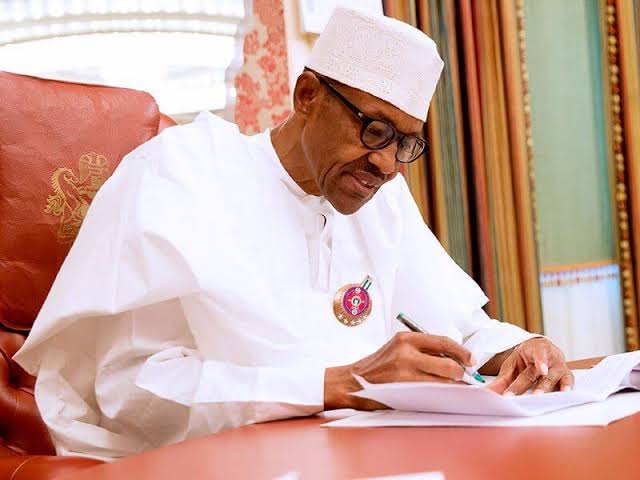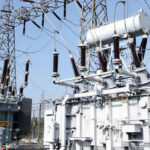Following the recent constitutional amendment assented to by President Muhammadu Buhari, the power sector regulatory body – the Nigerian Electricity Regulatory Commission (NERC) – now has powers to grant states license to generate, transmit and distribute electricity.
Prior to the review, the 1999 Constitution of the Federal Republic of Nigeria in articles 13 and 14 though positioned electric power in the concurrent legislative list for federal and state governments to legislate on electricity matters, however, restrained the powers. The states then were only permitted to interfere in areas not covered by the national grid system within that state.
Interestingly, the recent amendment reviewed Article 14(b) and liberally expands the powers of states to generate, transmit and distribute electricity to areas covered by the national grid unlike pre-reform regimes. What then are the implications of the powers extended to the states to generate electricity even in areas covered by the national grid?
For decades and even with the privatisation of the sector in 2013, the electricity value chain, especially transmission and distribution are literally monopolistic. The reason for this is that even when the electricity value chain has been unbundled and components privatised, the value chain remains highly integrated due to the nature of the electricity product.
Father of 6 bags 12 months in jail for illegal mining in Kwara
NDLEA lauds Reps for rejecting bill to legalise cannabis
Electricity in the form of electrons travels at the speed of light from generation to consumption points. Without integration, the disruptions due to poor coordination between components of the value chain can result in poor delivery.
In developed utilities, competitiveness has been introduced through market and regulatory reforms which facilitate consumers to select their preferred generators depending on tariff differences. Advanced metering technology makes this possible.
More recently technological innovations are creating opportunities for households and electricity consumers to explore self-generation options apart from public grid systems.
The available options range from conventional generators, solar and wind generators. An important incentive for self-generation is that the deployed smart metering solutions facilitate the sale of excess self-generated power back to the grid.
The liberalisation of the states to generate, transmit and distribute electricity has subtly de-monopolised the long-existing monopoly of the value chain making way for free competition in the market through states.
Possibly, some states will subsequently make investments in the power sector that will give rise to more electricity generation and supply. However, the question is, how much of additional generated power can be accommodated and integrated into the current Nigerian grid system?
Arguably, there may be a dire need for states to massively invest in further strengthening electricity network infrastructure which has been one of the major causes of the unstable poor supply in many parts of the country.
There are privately-owned distribution infrastructure that have been in use for over four decades, hence, the need for upgrade.
Equally, some government-owned power-generating plants which are yet to be concessioned and the Transmission Company of Nigeria (TCN) require significant capital outlay in order to upgrade the assets to the growing national power demand.
Even if there was sufficient generated electricity, in most cases, those worn-out infrastructure may be incapable of accommodating such load. As such we see excess generated electricity, unutilised. Modern technology has provided grid support and ways excess energy can be stored and utilised appropriately. This must be explored.
Given all these challenges and emerging opportunities, the most optimal way to leapfrog in the provision of improved reliable electricity, is for the state governments to consider how the potential investors would leverage on existing NERC regulations in third-party investments, franchising and eligible customer regulations before awarding investments in generation, transmission and distribution to new entrants.
This way, legal hitches in utilizing existing infrastructure which are privately owned can be avoided.
Depending on how the states intend to operate, the synergy between existing investors and new entrants will open up massive novel opportunities and will also see a rise of prosumers.
This means producing consumers; if states allow individuals with the capacity to generate their own power and distribute it. This can be a good foundation to usher in clean renewable energy sources.
In countries like the United Kingdom, innovative incentives (though limited in time) like feed-in tariff, renewable obligation certificates were created to encourage the generation of clean power through renewable sources by individuals, small and big companies alike. In fact, in the UK, some incentives like Contract for Difference, Smart Export Guarantee, Renewable Heat Incentives, etc. that encourage, support and incentivise the generation and distribution of clean energy through renewable sources are still operational.
Additionally, job creation and employment opportunities will also be a consequence of the implementation of the powers of the state.
The underlying economic, social and financial advantages that will result from this are enormous. Thus, liberalising the states to generate, transmit and distribute electricity is a step in the right direction.
On the other hand, with all the positive impacts this recent amendment will likely bring to the sector, the future of existing GenCos, TCN and DisCos remains uncertain.
With the previous monopolistic nature of the value chain, the sector battled liquidity crises, etc. Operating within an open market structure, leaves the fate of these market operators uncertain.
Continued on www.dailytrust.com
Ani, a lawyer and renewable energy expert, can be reached through [email protected]
States operating their own transmission networks may imply that the Transmission Company of Nigeria (TCN) which is the only body in the value chain that is 100 per cent government-owned and not privatised is now decentralised.
Furthermore, human capital flight may also be one of the setbacks that the current market operators may experience as states will source experienced and capable individuals to manage the state power investments.
Declining collection efficiency may also be experienced especially where consumers are at liberty to switch from one electricity company to another.
Consequently, the modalities for operations of the state with respect to generation, transmission and distribution of electricity must be clearly stated by NERC, the regulator.
NERC may have more work to do in terms of providing innovative guidelines for customers to switch or migrate from one network to another and not just allow it to be solely an internal affair of the state.
According to the World Bank, “Nigeria has the largest number of people without access to electricity in the world”.
The World Bank further states that “the power sector has not been able to keep up with demand or provide reliable supply to existing customers. Businesses in Nigeria lose about US$29 billion annually because of unreliable electricity”.
Optimistically, the implementation of this reform by states, especially if renewable energy sources are incorporated, Nigeria may witness a record decline in the number of people without access to electricity as well as see significant improvement in electricity supply, and ultimately boost the economy.
However, the success is dependent on implementing business models that will promote synergy and collaboration between the existing distribution investors and the new entrants to avoid potential rivalry that can lead to legal hitches.

 Join Daily Trust WhatsApp Community For Quick Access To News and Happenings Around You.
Join Daily Trust WhatsApp Community For Quick Access To News and Happenings Around You.


